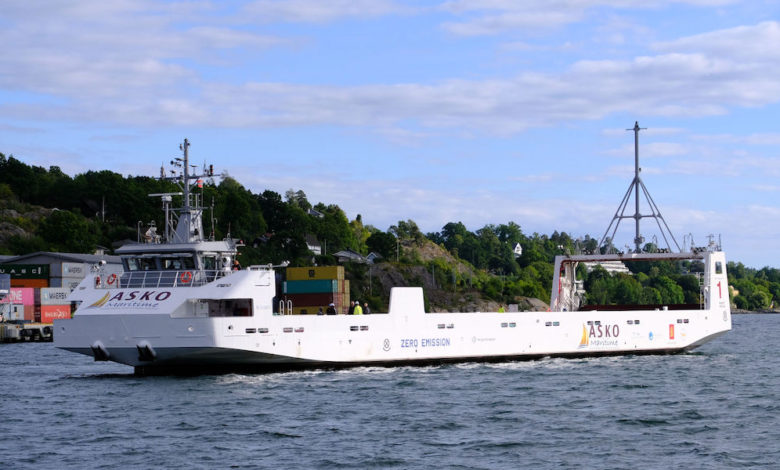AI and automated ships pose new challenges in casualty liability

Artificial Intelligence and the advent of automated ships will pose difficult questions in determining liability under the Hague Rules for maritime casualties, the 2022-2023 chairman of the Association of Average Adjusters has cautioned.
Sir Nigel Teare raised the concern as he suggested that a recent case, in which the Supreme Court in the UK confirmed that a defective passage plan will render a vessel unseaworthy, will be scrutinised in the context of technological developments.
Teare has been reviewing the implications of the general average case which he tried at Admiralty Court level in 2019, relating to the containership CMA CGM Libra.
The laden vessel left the buoyed fairway and grounded as it was leaving China’s Xiamen port in May 2011, necessitating a costly salvage operation. Most of the cargo interests accepted that the cause of the casualty was negligent navigation and paid their contribution to general average, but a small minority refused to do so. The shipowner failed in proceedings in the Admiralty Court to recover general average sums from that minority, and its decision was upheld by the Court of Appeal and the Supreme Court.
In his annual address to the adjusters association, Teare extended the question of passage planning to its potential application to vessels controlled by operators ashore or by computers onboard — ships known as Maritime Autonomous Surface Ships or MASS for short.
“They are not yet common,” he said, “but, with commendable foresight, MASS are being closely monitored by the International Maritime Organization.”
The IMO is exploring how far regulatory regimes such as SOLAS and the Collision Regulations can apply to autonomous ships. Its plan is to have a non-mandatory code for that type of ship by 2024, with a mandatory code in force by January 2028.
There was no reason why MASS should not have a passage plan to be seaworthy for their voyage, said Teare. “Such plans may in the future be produced by a computer. What if the reason that a passage plan is defective lies in a defect in the software purchased by the owner?”
He noted that Sir Richard Aikens, another judge, has suggested that in such a case an owner would be able to say that he had committed no breach of due diligence because the defect came about when the ship was not under his control or, as it was put in one case, “in his orbit”.
“That, if I may say so, appears to be correct,” remarked Teare, suggesting the need for the vessel to be in the orbit of the owner before the owner is subject to the due diligence obligation in the Hague Rules – the protocol of 1924 on the allocation of risk between shipowners and cargo interests – was recognised by the Supreme Court in the CMA CGM Libra case.
Teare questioned what if an error is committed by a computer.
“|If such error is the result of a defect in the software the automated vessel would presumably be regarded as unseaworthy. Again, there would be no breach of due diligence by the owner unless the owner could and should have detected the error before the commencement of the voyage. But if the error is the result of an error by the artificial intelligence of the computer, then that might well be regarded as negligent navigation by the computer just as if it had been an error by the officer of the watch,” Teare said.
At present, expert evidence in maritime cases is given by former masters and marine engineers. In the future, as and when MASS suffer a casualty, Teare said important experts may well be software engineers.

Well, this is going to be fun! But perhaps its practical effects will simply move the goalposts further away from any limitation of liability.